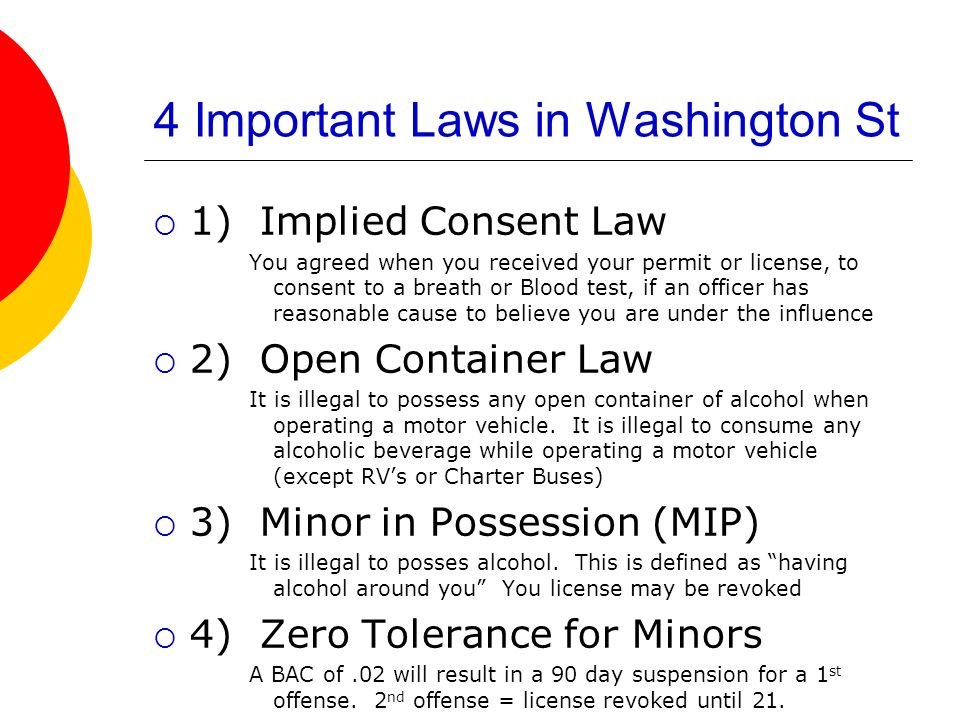Understanding The Implications: The Implied Consent Law For A Minor

The implied consent law means what for a minor is a critical topic that delves into the complexities of legal decision-making for underage individuals. In essence, this law implies that minors are presumed to consent to certain medical treatments when a parent or legal guardian is unavailable to provide consent. Understanding the nuances and implications of this law is essential for both healthcare providers and parents alike. It raises vital questions about autonomy, guardianship, and the rights of minors in medical settings. Let’s explore this intricate aspect of legal and ethical considerations surrounding minor consent.
The Implied Consent Law: What Does It Mean for Minors?
Have you ever wondered what the law says about giving consent as a minor? In this article, we’ll dive into the concept of implied consent and what it means for young individuals. Understanding your rights and responsibilities is crucial, so let’s explore the implied consent law and its implications for minors.
What is Implied Consent?
Before we delve into how implied consent applies to minors, let’s first define what it means. Implied consent is a legal term that refers to the idea that individuals are assumed to have given consent based on their actions or behavior. This can be in situations where explicit consent is not verbally or in writing provided. In the context of medical treatment, for instance, implied consent may be assumed if a person presents themselves to a healthcare provider seeking treatment.
Implied Consent and Minors
When it comes to minors, the concept of implied consent becomes more complex. Minors are individuals under the age of 18 who, in the eyes of the law, may not have the capacity to provide legal consent in the same way as adults. However, there are situations where minors may be deemed to have given implied consent.
Medical Treatment
One of the most common scenarios where implied consent may apply to minors is in the context of medical treatment. In emergency situations where a minor requires immediate medical attention and a parent or legal guardian is not available to provide consent, healthcare providers may proceed with treatment based on the assumption of implied consent.
It’s essential for healthcare professionals to act in the best interest of the minor and make decisions that are medically necessary and urgent. However, the specifics of when implied consent is appropriate can vary depending on the laws of the jurisdiction and the circumstances of the case.
Emergency Situations
When a minor is involved in an emergency situation where their life or health is at risk, the implied consent law allows medical professionals to provide necessary treatment without explicit consent from a parent or guardian. This is to ensure that minors receive prompt care when time is of the essence.
While implied consent in emergencies is aimed at protecting the well-being of minors, it is crucial for healthcare providers to document the circumstances and decisions made to ensure transparency and accountability.
Limitations of Implied Consent for Minors
Despite the allowances for implied consent in specific situations involving minors, there are limitations to consider. The law aims to strike a balance between protecting minors’ rights and ensuring they receive essential care when needed.
Non-Emergency Treatment
For non-emergency medical treatment, the rules around implied consent may not apply as strictly. In such cases, healthcare providers are typically required to obtain consent from a parent or legal guardian before proceeding with any procedures or interventions. This is to ensure that parents are involved in decision-making processes regarding their child’s health and well-being.
Legal Guardianship
Another factor to consider is the role of legal guardians in providing consent for minors. While implied consent may be assumed in the absence of a parent or guardian during emergencies, the legal authority of a guardian to make decisions on behalf of a minor is paramount in non-urgent situations.
Understanding Your Rights as a Minor
As a minor, it’s essential to be aware of your rights and how they intersect with the concept of implied consent. While the law recognizes that minors may not have the same legal capacity as adults, there are instances where you may be deemed to have provided implied consent.
It’s crucial to be informed about your rights regarding medical treatment, emergency situations, and consent. If you have questions or concerns about implied consent and how it applies to you as a minor, don’t hesitate to seek guidance from trusted adults, healthcare professionals, or legal experts.
In conclusion, the implied consent law for minors is a nuanced concept that balances the need for essential care with respect for individual rights. While minors may not always have the legal capacity to provide explicit consent, the law allows for certain situations where implied consent can be assumed.
Understanding the implications of implied consent as a minor is crucial for navigating healthcare decisions and ensuring that your rights are upheld. By being informed and aware of your rights, you can advocate for yourself and make empowered choices regarding your health and well-being.
Remember, your health and well-being are paramount, and the law is designed to protect and support you, even in situations where explicit consent may not be possible. Stay informed, ask questions, and seek help when needed to ensure that your rights as a minor are respected and upheld.
What does implied consent mean in Maryland?
Frequently Asked Questions
What is the implied consent law for minors?
The implied consent law for minors states that by choosing to operate a motor vehicle, individuals under the legal drinking age are deemed to have given their consent to chemical testing for alcohol or drugs if suspected of driving under the influence.
How does the implied consent law affect minors when they are pulled over for suspected DUI?
When minors are pulled over for suspected DUI, the implied consent law means that they are considered to have consented to a chemical test to determine their blood alcohol concentration or the presence of drugs. Refusing the test may lead to penalties such as license suspension.
What are the consequences for minors who refuse to take a chemical test under the implied consent law?
If a minor refuses to take a chemical test under the implied consent law, they may face penalties such as automatic license suspension, fines, and possible legal consequences. Refusal to comply can result in additional charges related to driving under the influence.
Final Thoughts
In conclusion, the implied consent law means that for a minor, medical treatment can be provided without explicit permission in emergency situations. This legal principle ensures prompt care is given to minors when necessary, prioritizing their well-being. Guardians should be aware of the implications of this law and ensure to discuss medical preferences with their children beforehand. Understanding the nuances of the implied consent law can help minors receive timely and critical healthcare without unnecessary delays.







